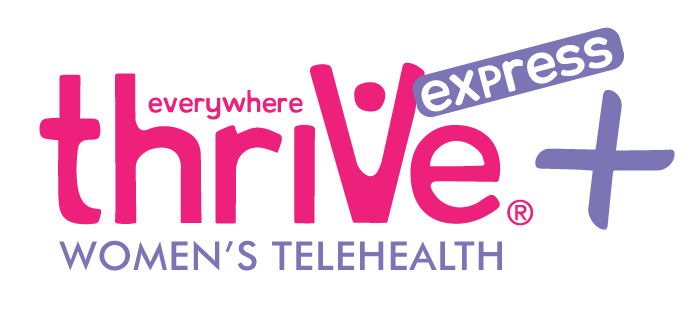This article was updated February 2025
How do you know someone is the right person for you? If you’re wondering, “How do I know what kind of partner I need to have a fulfilling relationship” — you’re not alone. Most of us have looked for signs that someone is right, or if they’re “the one.” Especially at the start of a new relationship, it can be a little hard knowing whether the person you’re dating is a good fit. You’re still getting to know each other. Maybe you’re thinking about starting a new relationship. Or maybe you’re in a relationship and considering whether (or not) it’ll last into the future.
Perhaps you’re wondering if you’re ready for a relationship at all! That’s totally fine — your relationship status and future are yours to decide. Whatever stage of life you’re in, you have time. You’re worthy of respect and love.
Romantic relationships can be amazing! But it’s important to know and keep your identity. You’ve got to stay true to yourself. Let’s talk about how to have your own identity while also having a healthy, happy relationship. One of the best tools for staying true to yourself in a relationship is boundaries! Boundaries are important, whether they’re physical, emotional, or even digital boundaries. But let’s talk about physical boundaries for a minute – you shouldn’t be feeling pressured to have sex or go further physically if you’re not ready. You’re in control.
Boundary talk: How Do You Know Someone Is the Right Person For You?
1. Know your boundaries: How do I know what kind of partner I need? Someone who understands what kinds of physical and emotional intimacy you’re comfortable with — and what makes you uncomfortable. It’s okay to take your time figuring this out.
2. Communicate clearly: When you’re dating someone, tell them your boundaries. If you don’t want to have sex, be open and honest and say so. He can’t know what you want unless you tell him. Even when your boyfriend knows you pretty well, he can’t read your mind. Once you’ve shared your boundaries, it’s important to understand that a respectful partner will respect your boundaries and not push you. It’s important that he understands how to have a meaningful relationship without sex being a requirement. Being pushy about sex is one of the warning signs that someone may not be right for you.
3. Respect each other: Just as you want your boundaries respected, make sure you respect his boundaries too. Respecting him doesn’t mean that you have to do everything he says, though. If your partner asks you to do things that make you uncomfortable, please know that you’re under no obligation. There are kind and respectful ways to say “no,” and you don’t have to stay in the relationship if it isn’t making you happy.

How Do I Know What Kind of Partner I Need? Someone Who Nurtures your Independence
You’re fun, beautiful, and interesting! It’s healthy to have your own interests and friends. How do you know someone is the right person for you? Part of knowing you’re ready for a relationship is that you can be independent. Romance is something to be enjoyed, not smother you. So let’s get practical – how do you foster your independence?
1. Get back to your hobbies: Keep doing the things you love, whether it’s sports, reading, art, or anything else. Having your own dreams and interests keeps you grounded.
2. Friendships: Keep up with your friendships outside of the relationship. Friends are a great support system! Wondering how to have a partner, and stay connected to who you are? Well, don’t let your girlfriends disappear. If your partner doesn’t want you talking to your friends or family, that could be a potential red flag. It isn’t cute or healthy for him to be jealous. You deserve to have a community and a person who embraces your independence.
3. Self-Care: Make time for yourself. Relax, pamper yourself, and do things that make you feel good. Taking care of yourself helps you stay strong and independent. You need to know how to have a relaxing time. Plus, a good partner will want you to feel pampered and taken care of!
Communicate and compromise
Wondering, “How do I know what kind of partner I need?” Long-term, committed relationships are built on strong foundations of trust. Here are the tried and true ways to build that trust:
1. Be honest: Start by openly expressing your feelings and thoughts. It’ll help you build trust and understanding. Encourage him to be honest with you, too. No one should feel like they’re walking on eggshells around their partner.
2. Listen: Pay attention to your partner’s needs and feelings too. It’s a two-way street. When communicating, instead of listening to respond, listen attentively to understand! Prioritize understanding where they’re coming from, before trying to get your opinion and perspective out there.
3. Compromise on negotiables: Some things are worth compromising on, like choosing a movie to watch or which friends to hang out with this weekend But never compromise on your core values and what makes you feel safe.
Hold on to who you are
How do you know someone is the right person for you when people change? It’s true that people change over time. And it’s actually a good thing to do some self-reflection and make healthy changes. But your partner shouldn’t require you to make changes about what you believe or who you are as a person. That’s not how to have a fulfilling life. You’re smart and you know yourself better than anyone.
1. Identify what you believe: Know what’s most important to you — like honesty, kindness, and respect. We’ll dive more into that later with a quiz towards the end of this blog!
2. Stick to values: Don’t change your core values for anyone. Decisions that don’t align with your core values usually don’t feel right in the long run — and are often decisions we regret. Look for a person who respects and shares your values. If your partner doesn’t share your core values, that doesn’t necessarily mean he’s a bad person. If you’ve been asking yourself, “How do I know what kind of partner I need?” This might give you some insight. When someone doesn’t share your core values, it could be an indicator that he’s not the right partner for you. When you’re thinking about the future and what you want your life to look like, you should pursue someone who wants the same things as you.
Codependent?
Please know that you deserve to feel confident in yourself. How do you know someone is the right person for you? Part of a healthy relationship (and a big green flag) is feeling comfy in your own shoes. If you regularly feel anxious or scared of being alone, it might be helpful to talk to a trusted mentor or a counselor.
Don’t lose yourself in the relationship. Keep being you. Talk about what you need and want without fear. A healthy relationship allows for open dialogue. Don’t expect your partner to fix your feelings. Take responsibility for your own emotional well-being. Feel down on yourself? We’ve all been there. If you have depression or anxiety, please take care of yourself. See your doctor to get help; you deserve that. Work on loving yourself independently of anyone else. You’re amazing just as you are.
Getting support
1. Support networks: Stay connected with family and friends. They can offer great advice and support. If you don’t know how to have support, check out some of these blog posts. If you’re facing an unplanned pregnancy, ThriVe’s women’s advocates are super friendly and non-judgmental. We’ve got you, no matter what you’re going through. We can connect you with more resources in your area to help.
2. Pursue personal goals: Keep working on your dreams and ambitions. Having goals gives you a sense of purpose and helps maintain balance in your relationship.
Outline for Deciding What You’re Looking for in a Partner
How do you know someone is the right person for you? Finding the right partner starts with knowing yourself. What do you want and need for your future? Here’s a simple outline to help you figure out what’s important to you. Use these prompts and checklists to guide your thoughts; it’ll help you know how to have the right expectations. This should be just the start of your decision process.
1. Personal Values and Beliefs
Core Values: What values are non-negotiable for you? (e.g., honesty, kindness, integrity)
Lifestyle Preferences: What kind of lifestyle do you envision? (e.g., career-focused, family-oriented, adventurous)
Beliefs: Are there any religious or spiritual beliefs that are important to you?
2. Character Qualities
Respectful: Does this person treat you and others with respect? (That’s a good sign!)
Supportive: Are they supportive of your goals and dreams? (Another good sign!)
Dependable: Can you rely on them in times of need?
Honest: Do they value truthfulness and transparency?
3. Communication Style
Openness: Are they willing to share their thoughts and feelings?
Listening: Do they listen to you and value your opinions? Do they ask you questions about your interests?
Conflict Resolution: Some disagreement is inevitable, but how do they handle disagreements? Are they willing to work through conflicts? How do you feel after a conflict?
4. Shared Interests and Activities
Hobbies: Do you have common hobbies or interests that you enjoy together?
Activity Level: Do they have a similar energy level and enjoy similar activities (e.g., outdoor adventures, quiet nights in)?
Differences: If you have some differences in interests and hobbies, are they respectful about those differences, or do they give you a hard time or belittle you for your interests?
5. Emotional Compatibility
Empathy: Knowing how to have empathy is a big deal. Can they understand and share your feelings?
Affection: Are they comfortable showing affection in ways that matter to you?
Emotional Stability: Are they emotionally mature and stable? Do you feel safe with him?
6. Goals and Ambitions
Career Goals: Do their career aspirations align with yours? Are they supportive of your career or goals?
Family Plans: What are their views on marriage, children, and family life?
Personal Growth: Are they committed to personal growth and self-improvement?
7. Lifestyle and Habits
Health and Wellness: Do they value a healthy lifestyle?
Social Life: Do they have a social life that complements yours? Are they comfortable with your friends and social circles?
Financial Habits: Do they have similar financial habits and views on money management?
8. Deal Breakers
Non-Negotiables: What are your absolute deal breakers? (e.g., dishonesty, substance abuse, lack of ambition)
Red Flags: What behaviors or attitudes are red flags for you? (e.g., jealousy, disrespect)

How Do You Know Someone is the Right Person For You: A Partner Quality Checklist
Use this just as a starting point for how to have your goals in place. Feel free to delete what doesn’t fit with you, and add what does. What’s important to you in a partner? If you’re in a relationship, does your partner embody what you’re after?
Personal Values and Beliefs
- Honesty
- Integrity
- Respect for all people
- Commitment to personal growth
Character Qualities
- Supportive
- Reliable
- Kind and empathetic
- Open-minded
Communication Style
- Good listener
- Communicates openly
- Resolves conflicts constructively
Shared Interests and Activities
- Enjoys similar hobbies
- Compatible activity level
- Some differences in hobbies, but respectful
Emotional Compatibility
- Empathetic
- Shows affection
Girl, you deserve the world. You deserve someone who’ll care for you deeply and treat you with respect. Thanks so much for taking the time to learn more about yourself and your goals. You’re worth that, and your future is important. Good for you for looking into how to have a healthy relationship. If you’ve been wondering “How do I know what kind of partner I need,” we hope this has helped. If you have more questions about relationships, check out some of our other blog posts on relationships. We’re your BFF when it comes to women’s health, relationships, STD testing, and more. We believe in you.




